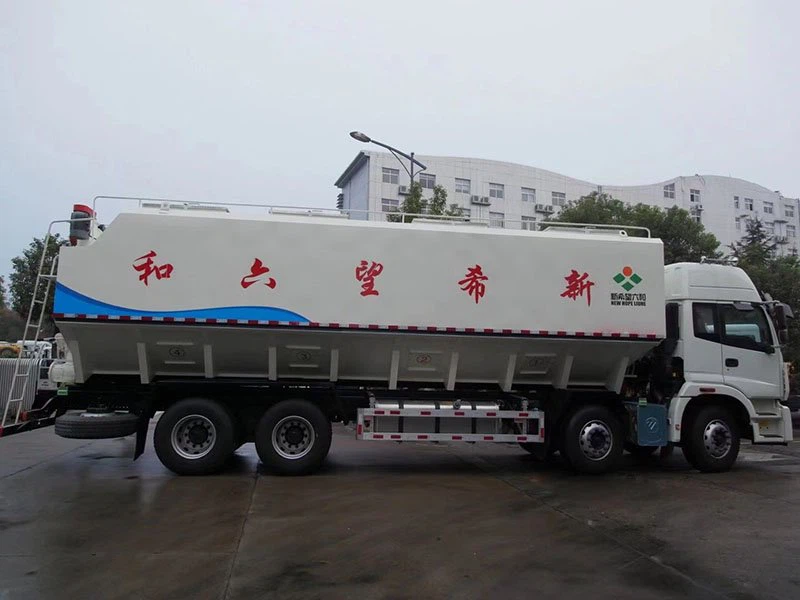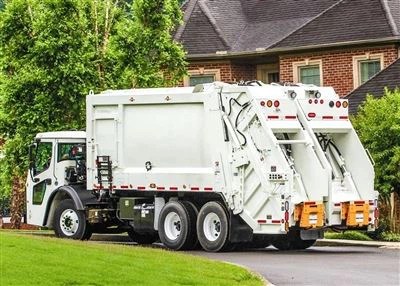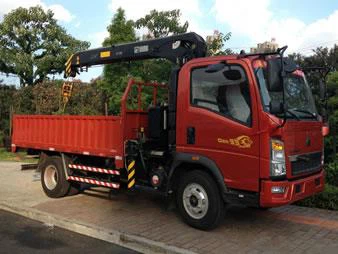Ultimate Guide to Hooklift Trailers for Sale: Everything You Need to Know

If you’re in the market for a versatile and durable piece of equipment, a hooklift trailer could be exactly what you need. These trailers stand out for their ability to interchange different container types, making them a popular choice across various industries. In this comprehensive guide, we will cover everything you need to know about hooklift trailers for sale, including their features, benefits, types, maintenance tips, and more.
Table of Contents
- What is a Hooklift Trailer?
- Key Benefits of Hooklift Trailers
- Different Types of Hooklift Trailers
- Choosing the Right Hooklift Trailer for Your Needs
- How to Maintain Your Hooklift Trailer
- Where to Find Hooklift Trailers for Sale
- Cost of Hooklift Trailers
- Used vs. New Hooklift Trailers
- Hooklift Trailer FAQs
What is a Hooklift Trailer?
A hooklift trailer is a type of towing device attached to a vehicle, designed to transport and exchange various types of containers or bins via a hook and lift system. The main feature of a hooklift trailer is its ease of use and flexibility, allowing operators to switch containers without needing additional equipment or labor. This makes them particularly advantageous for businesses that frequently move materials or change the types of loads being transported.
Components of a Hooklift Trailer
Understanding the components of a hooklift trailer can help you appreciate its versatility and functionality. Key components include:
- Hook System: The mechanism that connects to the container.
- Lifting Frame: A framework that raises and lowers the container.
- Chassis: The base structure of the trailer.
- Wheels: Providing mobility.
- Hydraulic System: Used for lifting and lowering the containers.
Key Benefits of Hooklift Trailers
Hooklift trailers offer numerous advantages that make them highly desirable for various applications:
1. Versatility

One of the most significant benefits is their ability to carry multiple container types, which can be essential for businesses handling different materials.
2. Efficient Loading and Unloading
Thanks to their hydraulic systems, hooklift trailers allow for quick loading and unloading of containers, saving time and reducing labor costs.
3. Cost-Effective
By eliminating the need for multiple types of trailers, businesses can save money on equipment costs.
4. Space-Saving Design
These trailers often take up less space compared to traditional trailers since they can stack different containers on-site without requiring additional parking area.
5. Durability
Made from high-quality materials, hooklift trailers tend to be more durable, capable of withstanding heavy loads and continuous use.
Different Types of Hooklift Trailers
When looking for a hooklift trailer for sale, it’s essential to understand the various types available:
1. Standard Hooklift Trailers
These trailers are designed for general-purpose use and are suitable for various applications, from construction to waste management.
2. Heavy-Duty Hooklift Trailers
Designed for more substantial loads, heavy-duty trailers can support greater weight and are ideal for industries that transport heavy materials.
3. Lightweight Hooklift Trailers
These trailers are perfect for lighter loads and can improve fuel efficiency due to their lower weight.
4. Custom Hooklift Trailers
Many manufacturers offer custom trailer designs to meet specific business needs, allowing for particular configurations and unique container types.
| Type of Hooklift Trailer | Load Capacity | Ideal Use |
|---|---|---|
| Standard Hooklift Trailer | Up to 10 tons | General hauling, construction |
| Heavy-Duty Hooklift Trailer | Over 10 tons | Construction, waste management |
| Lightweight Hooklift Trailer | Up to 5 tons | Transporting lighter materials |
| Custom Hooklift Trailer | Varies | Specialized industry needs |
Choosing the Right Hooklift Trailer for Your Needs
Selecting the right hooklift trailer involves considering various factors:
1. Load Capacity
Evaluate the maximum weight you’ll need to haul and choose a trailer that meets or exceeds this requirement.
2. Container Types
Consider the types of containers you’ll be using. Make sure the trailer is compatible with your current and potential future containers.
3. Terrain and Environment
If you’ll be operating in rugged conditions, consider a heavy-duty model that’s built for durability.
4. Budget
Your budget may influence your choice between new and used trailers, as well as additional features.
How to Maintain Your Hooklift Trailer
1. Regular Inspections
Conduct regular inspections of the trailer to check for wear and tear, especially on the hook and hydraulic systems.
2. Lubrication
Apply lubricant to moving parts to prevent rust and ensure smooth operation.
3. Tire Maintenance
Check tire pressure regularly and rotate tires according to the manufacturer’s recommendations.
4. Cleanliness
Keep the trailer clean to prevent corrosion and build-up of materials that could impair performance.
Where to Find Hooklift Trailers for Sale
When searching for a hooklift trailer for sale, consider the following options:
1. Online Marketplaces
Websites like eBay, Craigslist, or specialized equipment sales platforms can be excellent resources.
2. Manufacturer Websites
Check the websites of reputable trailer manufacturers for listings of new and used trailers.
3. Local Dealers
Visit local equipment dealers who may have hooklift trailers in stock or can assist you in finding one.
4. Auctions
Industrial auctions can be a great place to find competitive pricing on used hooklift trailers.
Cost of Hooklift Trailers
The price of hooklift trailers can vary widely based on several factors:
1. New vs. Used
New trailers can be priced anywhere from $10,000 to $50,000, while used ones may range from $5,000 to $25,000 depending on condition.
2. Type and Features
Heavy-duty or custom models typically cost more than standard models due to their additional features.
3. Brand Reputation
Well-known brands may charge a premium for their reputation and quality.
Used vs. New Hooklift Trailers
Weighing the pros and cons of new versus used hooklift trailers can help you make an informed decision:

Pros of New Hooklift Trailers
- Modern features and technology
- Full warranties
- Custom options available
Cons of New Hooklift Trailers
- Higher cost
- Depreciation begins immediately
Pros of Used Hooklift Trailers
- Lower price
- Less depreciation
- Still offers reliability if well-maintained
Cons of Used Hooklift Trailers
- Potential hidden issues
- Limited availability of specific features
- No warranty in many cases
Hooklift Trailer FAQs
1. What kind of vehicle do I need to tow a hooklift trailer?
You will need a truck equipped with a compatible towing system, usually a commercial-grade vehicle that can handle the trailer’s weight.
2. How do I operate a hooklift trailer?

Operating a hooklift trailer requires knowledge of the hydraulic system and the appropriate sequence for lifting and lowering the container. Always follow the manufacturer’s instructions.
3. Can I use a hooklift trailer for waste management?
Yes, hooklift trailers are commonly used in waste management to easily transport different types of waste containers.
4. What is the average lifespan of a hooklift trailer?
With proper maintenance, a hooklift trailer can last anywhere from 10 to 20 years, depending on usage conditions.
5. Are hooklift trailers suitable for construction?
Absolutely! They are frequently used in the construction industry to transport equipment, debris, and various materials.
6. How can I improve the longevity of my hooklift trailer?
Regular maintenance, including inspections, lubrication, and cleaning, as well as avoiding overloading, are key to extending your trailer’s lifespan.
